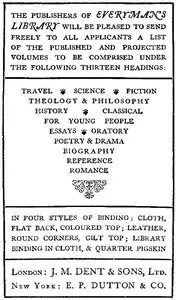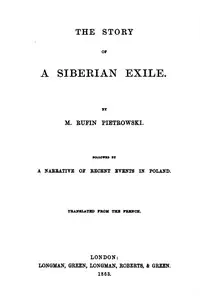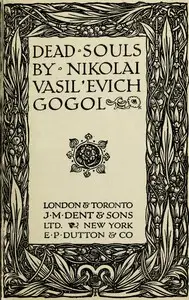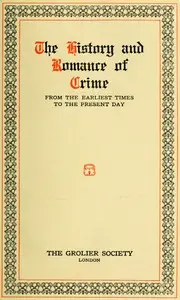** "The House of the Dead; or, Prison Life in Siberia" by Fyodor Dostoyevsky is a novel inspired by the author's time in a Siberian labor camp, showcasing the difficult lives of the prisoners and examining ideas of suffering and recovery. The story begins with a reflection on the bleak conditions of the Siberian prisons, emphasizing the isolation and despair found within the walls. Readers are introduced to Alexander Goriantchikoff, a man imprisoned for murder, highlighting the solitude experienced by convicts. The narrative then explains how the prisoners interact, showing the range of emotions among them, while revealing their humanity as they face a difficult daily life, and giving the reader thought-provoking commentary on punishment. **

The House of the Dead; or, Prison Life in Siberia with an introduction by Julius Bramont
By Fyodor Dostoyevsky
** Condemned to a Siberian labor camp, prisoners grapple with despair, form unexpected bonds, and struggle to maintain their humanity in a harsh and unforgiving world.
Summary
About the AuthorFyodor Mikhailovich Dostoevsky, sometimes transliterated as Dostoyevsky, was a Russian novelist, short story writer, essayist and journalist. Numerous literary critics regard him as one of the greatest novelists in all of world literature, as many of his works are considered highly influential masterpieces. Dostoevsky's literary works explore the human condition in the troubled political, social, and spiritual atmospheres of 19th-century Russia, and engage with a variety of philosophical and religious themes. His most acclaimed novels include Crime and Punishment (1866), The Idiot (1869), Demons (1872), The Adolescent (1875), and The Brothers Karamazov (1880). His 1864 novella Notes from Underground is considered to be one of the first works of existentialist literature.
Fyodor Mikhailovich Dostoevsky, sometimes transliterated as Dostoyevsky, was a Russian novelist, short story writer, essayist and journalist. Numerous literary critics regard him as one of the greatest novelists in all of world literature, as many of his works are considered highly influential masterpieces. Dostoevsky's literary works explore the human condition in the troubled political, social, and spiritual atmospheres of 19th-century Russia, and engage with a variety of philosophical and religious themes. His most acclaimed novels include Crime and Punishment (1866), The Idiot (1869), Demons (1872), The Adolescent (1875), and The Brothers Karamazov (1880). His 1864 novella Notes from Underground is considered to be one of the first works of existentialist literature.



















